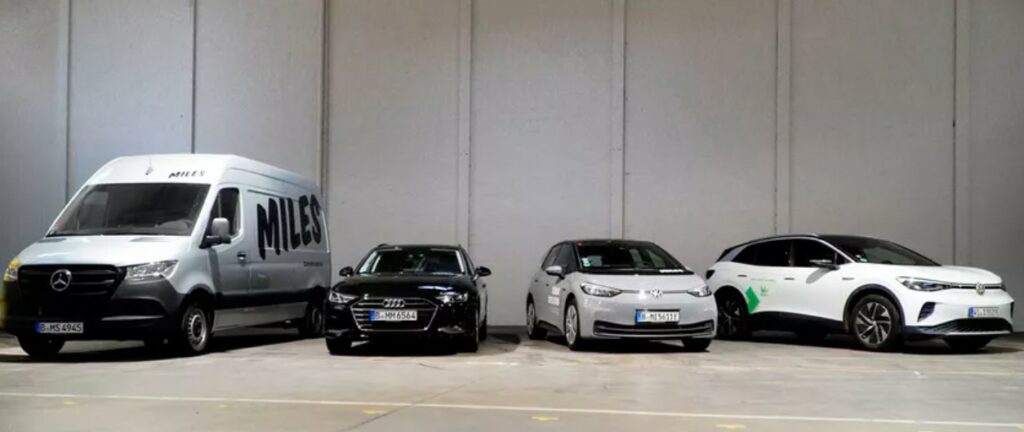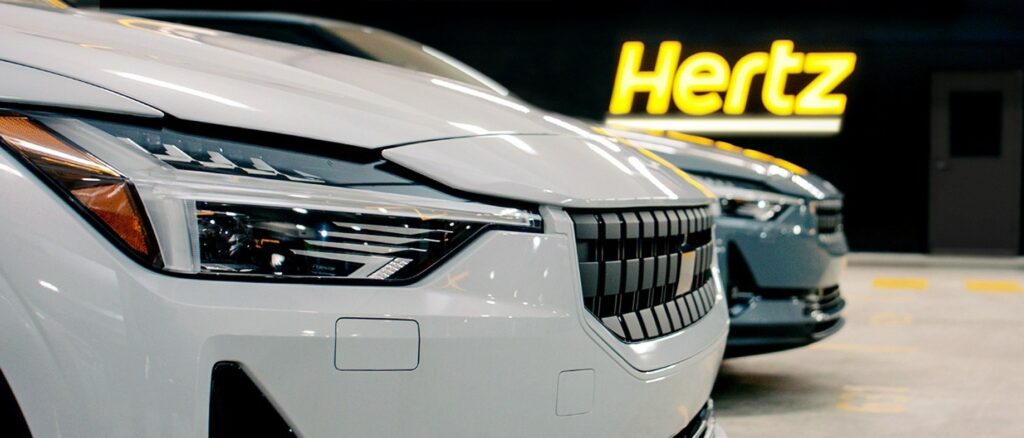Are German carmakers turning their backs on car-sharing?
09 November 2022

From ride-hailing to vehicle-sharing schemes, automotive companies have been pouring money into shared-mobility services that even include ‘self-driving’ taxis. These ventures once sounded promising, but German carmakers have recently made a U-turn by selling off their car-sharing businesses.
Volkswagen (VW) Group announced last week that it would offload its car-sharing service WeShare to startup Miles Mobility. While financial details were not disclosed, it is no secret that car-sharing has struggled with profitability. Ultimately, the sale shows that VW Group’s plans to turn the business into a profit-making platform were too ambitious.
Pioneering electric car-sharing
VW Group had high hopes when it launched WeShare, its electric-vehicle (EV) car-sharing business. The service set out to provide electric cars to customers in Berlin and Hamburg. It describes itself as a 100% electric car-sharing service that is available to around 200,000 users.
The fleet consists of 2,000 all-electric ID.3 and ID.4 models that will now go to Miles Mobility. As part of the takeover agreement, Miles has ordered 10,000 EVs from VW Group brands such as Audi, SEAT, and Cupra.
For Miles Mobility, the acquisition will help to build its electric fleet. Founded in 2016, the company calls itself the biggest independent car-sharing provider in Germany, with a presence in Belgium. Around 70% of the company’s fleet is made up of VW Group cars.
Miles Mobility told Autovista24 that ‘WeShare was the pioneer of electric car-sharing. We strive to continuously expand both our vehicle fleet and our customer base in an economically sustainable way. In addition, fleet electrification is a cornerstone of the Miles strategy. With the acquisition of WeShare, Miles takes another significant step within this development.’
The company added that it aims to become the leading car-sharing platform in Europe and ‘provide customers with a reliable and sustainable form of mobility to enable people to get rid of their own cars.’
It is noteworthy that Miles Mobility and VW Group describe themselves as partners. Following the takeover announcement, the two companies said they would continue to expand their collaboration. The carmaker said ‘in the course of the future integration, it is planned to continue evolving the Miles fleet in line with the electrification of the VW Group.’
Individual mobility versus car-sharing
Despite selling its car-sharing business, Europe’s largest carmaker emphasised it would still aim to participate in the market for new mobility services. The reason behind the sale is likely linked to VW Group’s recent takeover of car-rental company Europcar.
The German manufacturer wants Europcar to be the cornerstone of its mobility platform, including car-rental and subscription services, as well as car-sharing and ride-hailing. VW Group will look to offer autonomous vehicles via the platform later this decade, something that it says would catapult the business to a higher level of profitability.
But VW Group conceded that individual mobility will be the preferred option in the future as people still like to use their own car. Attracting enough repeat business from car-sharing services is also not an easy task, especially since mobility providers like Uber have entered and disrupted the mobility market.
Growing trend
Other German carmakers have restructured their car-sharing endeavours. Share Now, a free-floating car-sharing business that was formed as a joint venture between BMW and Mercedes-Benz in 2019, was sold to Stellantis earlier this year. The German brands said they want to focus on their EV charging business, Charge Now, as well as mobility app Free Now.
Both BMW and Mercedes-Benz reiterated that car-sharing would remain an important part of Free Now. However, efforts are now being focused on other businesses to support the expansion of electromobility.
‘With the apps Free Now and Charge Now, we want to provide our customers with a comprehensive and wide range of digital services,’ said Rainer Feurer, head of corporate investments at BMW Group, at the time. ‘The new orientation enables us to scale our activities faster and achieve further profitable growth in the shortest possible time.’
For Stellantis, the acquisition will offer further growth opportunities and profitability. The company said it was writing a new chapter for Share Now by bundling activities with its mobility brand Free2move, which boasts two million customers and 450,000 rental vehicles. Share Now’s fleet consists of 10,000 vehicles, of which 3,000 are EVs. About 3.5 million customers use Share Now’s service in 16 European cities.
There is no recipe for success when it comes to making mobility services such as car-sharing profitable. Analysts expect the coming decade to be shaped by consolidation in the mobility industry. While car ownership is likely to decline in the next twenty years, for now, German carmakers are concentrating their efforts on their core business model: individual car ownership.



